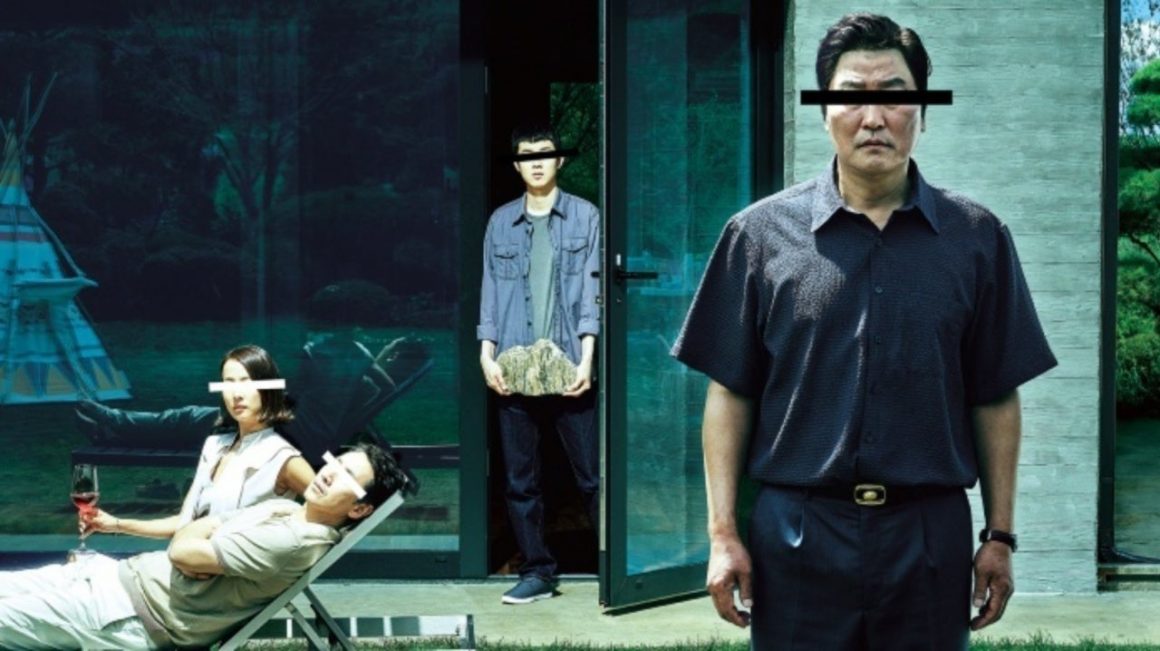
Calgary International Film Festival offers variety
By Troy Hasselman, September 24 2019 —
The Calgary International Film Festival (CIFF) has lit up screens across Calgary’s downtown for the last week. The festival showcased a variety of works, from a Canadian-directed story of brotherhood, to a New Zealand-made meditation on grief and community, to a South Korean black-comedy about class struggle. This year’s edition of CIFF has offered a smorgasboard of arrays, themes and tones to choose from. Here are some of this year’s notable works.
The Song of Names
François Girard’s The Song of Names marked the opening gala of this year’s CIFF. The film stars Tim Roth and Clive Owen and tells the story of two childhood friends that are separated after events stemming from the Second World War. The film deals with themes of loss, separation, family, Jewish-identity and music.
The film follows multiple timelines, portraying Martin (Roth) and Dovidi (Owen) throughout their childhood, young-adulthood and middle-age. Dovidi is a violin prodigy that is sent by his Polish-Jewish family to live with Martin’s family in the days before World War Two. The two boys bond quickly and support each other through the war and their adolescence while Dovidi is fearful of what may have become of his family. Before his debut solo concert in 1951, Dovidi disappears and the film fast forwards from there to 1986 where Martin attempts to track down his brother and goes on a journey that takes him across multiple continents.
Girard is known for films such as The Red Violin and Thirty Two Short Films About Glenn Gould. This film keeps in with his running motif of music, using it as both a backdrop and plot device. The musicality runs as a connective thread through the film that adds another layer of depth. Owen and Roth both deliver strong performances that capture the motivations and humanity of each character and it acts as a moving depiction of brotherhood and the unshakeable bonds of human connection.
There are issues with the film, however. The multiple-perspectives cause the plot to drag in the middle portion of the film, and the ending doesn’t deliver the emotional payoff expected from the long journey undertaken by Roth’s character to find his friend. While the movie is undeniably beautifully shot and acted, it ultimately falters at the end and doesn’t quite stick the landing of the story that is set up in the first act of the film.

Bellbird
Bellbird, the New Zealand-based comedy-drama from writer, director and schoolteacher Hamish Bennett, takes a surprisingly breezy look at grief under a bucolic backdrop. The film centers on a farmer in a small and rural community that rallies around him in the wake of the unexpected death of his wife.
The farmer, Ross (Marshall Napier) and his adult son, Bruce, (Cohen Holloway) band together with other locals to keep the farm running, the film thoughtfully ruminates on grief, aging, family and community. The movie takes an observer’s approach to its characters as they interact with one another in a way that’s both realistic and engaging, with the dialogue never becoming cloying or unworkable.
Keeping in pace with its surroundings, the movie drifts by like one of the sun-drenched Kiwi afternoons that the narrative inahabits. The film holds onto its breeziness, even through the backdrop of tragedy that informs it. The characters’ vibrancy holds Bellbird together as the work of the New Zealand dairy farm takes centre stage.
Though my Canadian ears would often have difficulty discerning the thick accents of the New Zealand cast in the dialogue-driven film, I still found myself charmed by their quick banter with the rural wit reminding me of my own youth in a small town. The rural sense of community is unshakeable, as is illustrated in this film, and shows the strong bonds that people can make with one another while living in the same close proximity.
Bellbird is a charming, small film that captures the beats and rhythms of rural life and speaks on the centrality of community to human existence and how it can lift one through seemingly insurmountable tragedy. Though a slow-paced film about a rural dairy farm is not a film that I would expect to enjoy, the disarming charm of Bellbird is enough to keep the film afloat and engaging through its runtime.

Parasite
Coming off an avalanche of critical acclaim and its victory of the prestigious Palme d’Or at this year’s Cannes Film Festival, it wouldn’t be hyperbole to call Bong Joon-ho’s Parasite one of — if not the — most anticipated films, of the festival. The South Korean dark-comedy follows the impoverished Kim family as they con their way into employment for the affluent Park family. The less you know about the plot of this film going in the better, so I’ll leave my description at that.
The movie deals with themes of class, greed, wealth and corruption while keeping its comedic edge razor sharp throughout. Imagine an episode of It’s Always Sunny in Philadelphia that turns into a horror-movie halfway through, and you’re close. The film keeps with the trademarks of much of Bong Joon-ho’s work, including the social commentary and abrupt shifts in tone, while holding a comedic edge that is more present here than in any of his films.
The cast impeccably embody their characters as the desperation and ruthlessness of the Kim family is fully captured, along with the Park’s affluent naiveté. The movie is paced incredibly, with its over two hour run-time zooming by as it trades comedy for suspense and tension for release, above its thoughtful meditations on class and poverty. Parasite is pure entertainment, and not only a highlight of the festival, but simply one of the best films of the year.

